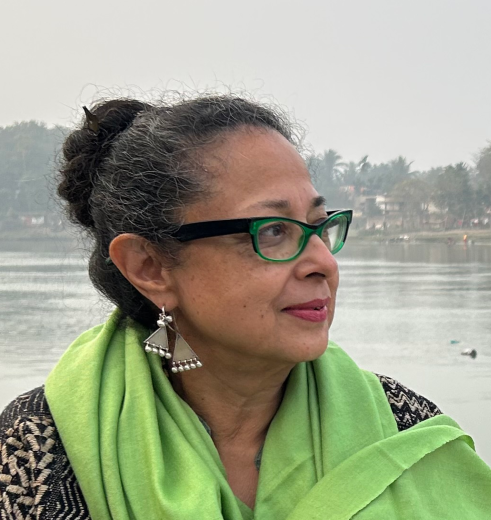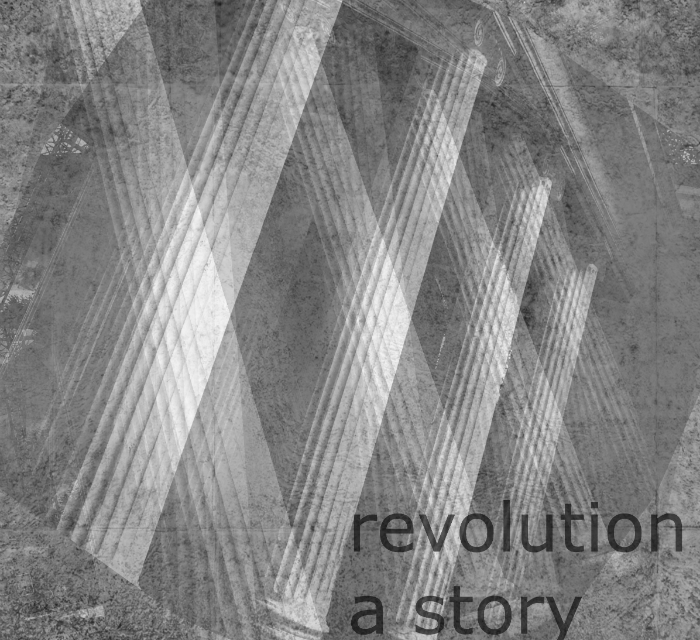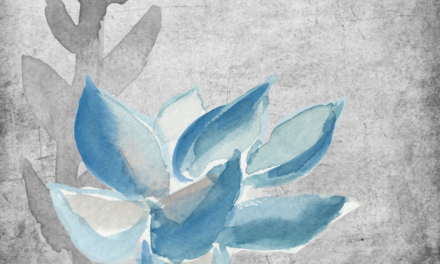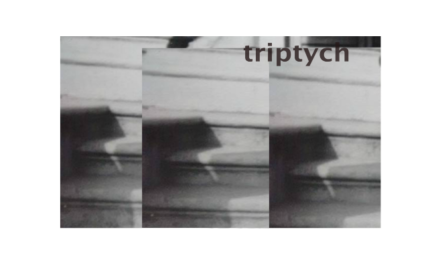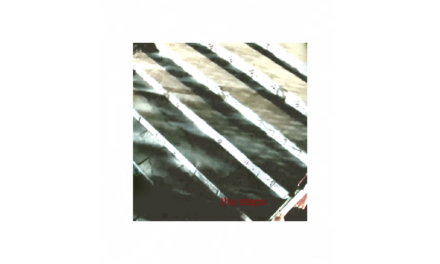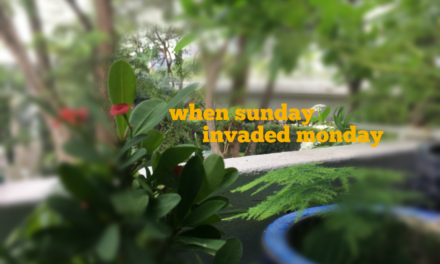The tiny dark man in spotless white dhoti and panjabi – in Bengal, the kurta has been called that for a very long time – had just reached the palm tree at the end of the unpaved gravel strewn path leading up to the house. Rimi peered out of the window, her eyes getting brighter with each step the man took, as she unconsciously closed the book lying on the desk. She’d study later.
Now, it was time for Bismil and Ashu Babu.
What would it be today? Aloo kabli? Roshogolla? Pantua? or Chanachoor? Bismil never disappointed. Rimi imagined an array of snacks, sweets, and street food and felt her heart leap with anticipation.
The little gentleman in white hurried down the path and reached the steps of the side entrance. He took off his black leather shoes and with the end of his black umbrella carefully aligned them next to one another on the cemented floor, before beginning to take the steps; a small bag swung from his other hand. The bag must have been of some recognisable colour at some point. Now it evinced no sign of its initial hue, it had risen above such merely physical attributes, colour was not of consequence. It had become Bismil.
Rimi tripped out of the room next to the side entrance; it was their study room. Her siblings, cousins, and she had their work desks there, all made of wood and painted a bright shade of green. Her father and his siblings and cousins used to study in that room as well when they were young. Children had to have a separate place for their studies, Ranga Dadu was strict about such things.
Actually, Ranga Dadu was strict about everything.
Rimi frowned, then remembered her great uncle was not at home now; her face brightened up again; she ran down the steps to relieve the visitor of Bismil and Ashu babu.
***
Koyla Babu paused in his stride. Koyla Babu, Mr Coal… that was the gentleman’s name. Practically everyone called him Koyla Kaka or Coal Uncle; even the children; though by rights perhaps, they should have addressed him as Koyla Dadu, Coal Great Uncle… but Koyla Kaka had held sway, so Coal Uncle it was.
If you’re thinking the diminutive Coal Uncle was given that name because of his complexion, you’d be absolutely wrong. It was because his family had owned coal mines in Jharia once. They used to be very wealthy, but the usual ups and downs of business… and one fateful day, a young Kutchi businessman had to bail out the family during hard times; he became the majority stakeholder in the mines. Business picked up well after independence, but then Mrs Gandhi’s nationalisation had come along. Koyla kaka’s family lost their mines and estates, their wealth was drastically diminished.
Coal Uncle was the eldest son of Babu Janardan Pal Choudhary and Uttara Debi. He’d grown up in Bobamachhi, in their vast home close to the collieries, designed by one Mr Carlton. Bobamachhi didn’t have proper schools; back then, villages didn’t have such things, only ramshackle “pathshalas” with crotchety, impoverished school masters. And anyway, what could one expect in a place called Bobamachhi… dumb fly, of all things.
So Koyla Kaka had never gone to school. A teacher from the city was employed and put up in the outhouse. He would come home regularly, but the student would find several ways of evading the good gent, and stave off all attempts to educate him. This was achieved with a great deal of help from Coal uncle’s indulgent grandmother, who lived with them. In the mid thirties, his father sent his mother and grandmother to Kolkata with all the children, so they could attend school and college.
Koyla Kaka’s younger brothers and sisters had earned certificates and degrees. while Koyla Kaka, who was around fifteen when they’d moved to the city, had spent his time in the bird markets at Hathibagan nearby, and in the plush cinemas in the Chowringhee area. That’s how his great love for the movies had come about. Those days otherwise, people of “bhodro bari” – civilised homes – rarely went to watch bioscopes, infernal Hindi films at that.
Sometimes he’d chuckle remembering, his button like black eyes gleaming and almost disappearing as he smiled, “Ohhh! What do you all know of those bioscopes, such crackling fun and fire in them… the emotions!!! The banter… the songs… Pannalal Ghosh… uh-hunh, uun-hunh!” he’d shake his head asserting, “Not many can touch him. And the actresses?!! You should see Pramila in Basant. She was a beauty! Beauty! I tell you. My friend Joe Araki, he used to know her… she was not Bengali, you know, she was Ihudi… Jewish lady… I saw Basant twenty-nine times!” Why not thirty, Rimi wondered every time she heard him say this.
Coal Uncle’s first Hindi film had been Debaki Bose’s Seeta. His voice would still tremble a bit when he recalled Durga Khote, the young heroine. Prithviraj Kapoor, the hero, had left an impact as well. Coal Uncle drew himself up to his full height of five foot and a bit and puffed out his chest when he spoke of the over six feet tall, and by now legendary, actor. He had lost count of the number of times he’d seen Mughal-e-Azam, which was made many years later in 1960.
“Arre, Jille Ilahi Aakbor and Jodha… Prit-thiraj and Durga Khote… stole the show… it is their love story! Absolutely, without a doubt! Dileep Kumar, Modhubala… arre baba!! Nothing… noth-ing compared to them. what Seleem and Anarkoli!” he’d state emphatically, whenever anyone spoke of the film.
Movies apart, there was one other thing that moved him greatly.
Revolution.
***
In those early years in Bobamachhi, Coal Uncle spent a lot of time with his grandmother. She was a great story teller who told him many tales and about all kinds of things. Over long afternoons and as dusk dimmed to somnolent nights, Ramayan, Mahabharat, and the mythologies were narrated. Strange and wonderful things happened in the fantasies and fairy tales of Thakurmar Jhuli. Abol Tabol and Ho Jo Bo Ro Lo brought guffaws and chortles. Balmikir Pratibha was practically enacted and they sang the songs together. In the middle of all that, Jhansi ki Rani Lakshmibai came riding on her horse. Or shots rang out in Jallianwalla Bagh and Tagore returned his knighthood. Brave sepoys rose against the British all along the holy river Ganga. The barely eighteen year old Khudiram Bose went cheerfully smiling to his death. Swami Vivekananda went to America and told the world a few things they needed to hear. Bhagat Singh roared “Inquilab Zindabad!” Ramprasad Bismil and Ashfaqulla Khan planned the Kakori Train Robbery. Oh, there were so many things grandmother told her eldest grandson of.
Ancient tales and not so ancient ones and stories coming into being all around them flowed seamlessly. A young boy’s sentiments were stirred. He wanted to be Khudiram Bose, he wanted to be Rajguru, he wanted to be a sepoy declaring mutiny.
The stories of the revolutionaries left a mark. His grandmother, who had learnt to read and write defying tradition, encouraged him to go through the newspapers; and though Coal Uncle had escaped all efforts to educate him formally, in his teens, he started reading the papers, just to know what was happening on the revolution front.
***
“What’s inside Bismil today?” rimi asked, taking the bag eagerly.
“Rimi Didi, I think you’ll like the hot… hot…” Coal Uncle paused for effect and his eyes grew round, he smiled a wide smile. His teeth were startlingly white against his deeply dark skin, which had a sheen of its own.
“Beguni!” Rimi squealed. she raced up the steps, chanting, “Beguni! Beguni! Bismil has brought Beguni!”
Soon the other kids were chasing her and they all fell upon the bag and the scrumptious brinjal fried in batter. This was the norm, there was always something delicious inside Bismil for the kids. All Coal Uncle asked for in return was that his umbrella Ashu Babu be kept carefully somewhere and handed back to him when he left.
For a long long time, no one knew why Koyla Kaka called his bag Bismil, or his umbrella, Ashu Babu. He had told the ladies one day though after the movie. He’d named the two things he always carried, after his favourite revolutionaries: Ram Prasad Bismil and Ashfaqulla Khan.
He had hummed, a little out of tune, the first bars of Ram Prasad Bismil’s patriotic song Sarfaroshi Ki Tamanna as he’d told them why.
The ladies had been touched. Coal Uncle was a loner, he had never married; he rarely mentioned his brothers or sisters. They said, his brothers were doing well, working in big companies, but no one seemed to have much time for him. And if you saw him, well, you would not have imagined you were standing before a revolutionary. No one had certainly imagined he felt so strongly about anybody or anything. Other than the movies, that is.
He’d said, Ram Prasad Bismil and Ashfaqulla Khan were perhaps among his earliest memories. He must have been around five or six when the train robbery had taken place. In Bobamachhi, everyone spoke of it for days, even the servants and the miners. One night, his grandmother had told him the story of two very brave young men who wanted to be free and had rebelled against the wicked king. She’d called them Ram and Ashu.
He had smiled pensively, and confided, “I made a little change. Instead of ram, I chose his pen name Bismil, it sounds like a Muslim name, but belongs to a Hindu!” Coal Uncle’s eyes twinkled at his own cleverness. And because he felt Ashu was too informal, he added a Babu while naming his umbrella after Ashfaqulla Khan.
***
“Where? Where’s everybody?” Koyla Kaka called out, entering the house, “Are the ladies ready?”
He always addressed them as the “ladies”. Rimi’s mother was one of them. The others were her sisters in law, four in all, wives of her husband’s brothers and cousins; and Biju and Japan. The former was Rimi’s father’s sister and the latter, his first cousin, Ranga Dadu’s youngest daughter. They weren’t married as yet and lived in the house with all of them.
Japan Pishi was still studying, Ranga Dadu had finally agreed to a correspondence course, that way she wouldn’t have to go to college every day. There was no question of a young woman stepping out of the house on her own, of course.
“You’re here, Koyla?” a frail voice greeted him. It was Boro Bomma, the eldest great aunt. She was even older than Ranga Dadu. She was the only one who called the little dark man by his name.
Boro Bomma was sitting on her bed, slowly knitting, her fingers shook as she lifted the wool and tucked it between the needles; the arthritis had been bothering her a lot lately. Winter was near, her Gopal and Radha needed warm clothes. In the temple at the back, their small, bell metal idols had a special place. It was a platform of pure silver. The draft from the windows on the north side brought in chilling winds. And so, every year Boro Bomma made new woolen clothes for her deities.
“Nomoshkar, Boro Bomma!” Coal Uncle greeted her cheerily, and sat down on the low cane mora at the foot of the bed. He looked around warily, as though suddenly sensing danger, then whispered…
“Is the lion at home?”
Boro Bomma pursed her lips, hiding a smile.
“You mustn’t talk like that about my younger brother in law!” she admonished, wagging her knitting at him.
Coal Uncle said nothing.
A couple of minutes went by. he looked at the clock on the wall and shook his head.
“It’s getting late…” he said, “We’ll miss the first scene…”
“That’s okay, Koyla, you’ll watch the phillim many more times, I am sure…” Boro Bomma countered.
“Na… Boro Bomma, these days, everything is so expensive, how can I…” Coal Uncle said, shrugging and making a face.
“Maybe not twenty nine times, but at least two or three or even five times… I am sure,” Boro Bomma teased him.
Just then the ladies walked in, everyone was ready.
“Come back the moment the phillim gets over!” Boro Bomma said, “No wasting time, eating this and that… Ranga Babu will be very angry if you’re not back by nine thirty at the latest!”
“Ready for Omitabho and Hema Malini?” Coal Uncle beamed at the ladies, “Come, come, let’s go and see what’s in our Naseeb!”
The film was called Naseeb, which means destiny.
“We’ll take your leave Boro Bomma, and remember, as far as Ranga Babu is concerned, we are at the spiritual talk!” Koyla Uncle said as he ushered the ladies out.
Rimi waved out to her mother as they all left.
***
Some rules become part of life; no one ever thinks of questioning them. Like the rule about women not going out alone. They had to have a man escorting them, morning, afternoon, or night. Who had made this rule? No one could tell you clearly, but everyone followed it. Ranga Babu would be furious otherwise. And you didn’t want him to be furious.
Then there was the rule about movies. Ranga Babu believed movies were a waste of time, also, watching these worthless things with all that singing and dancing would set a very bad example for the children. So, movies were out. Or maybe once or twice a year, a mytholgical film or something like that could be tolerated. But that was all.
Koyla Kaka, who had been coming to the house for a very long time, and who thought well of the ladies – especially since they were always kind to him and he enjoyed chatting with them – decided this was not right. A nice film once in a while couldn’t harm anyone. Something had to be done.
And so it was, that at least once a month, he’d get tickets for a newly released film and take the ladies to the cinema. They went for the evening show. That way, they would be back before Ranga Dadu returned from the evening session with his clients. He was a lawyer. And if Ranga Dadu was early, Boro Bomma would manage things. She’d say Koyla Babu had taken the daughters in law, and biju and japan for a spiritual talk at the prayer hall near Deshapriya Park. Ranga Dadu couldn’t object to that, could he.
***
That day, Ranga Dadu came home a little earlier than usual.
Koyla Kaka and the ladies returned soon after. they were talking animatedly, laughing, as they entered the room. Rimi smiled at her mother who smiled back at her. She went and took Ashu Babu from Coal Uncle.
“And where are you all coming from so late in the evening?” Ranga Dadu asked sternly.
“Ranga Babu,” Boro Bomma said, “They had gone to the…”
But before she could complete her sentence, Chhoto Kakima – Rimi’s youngest uncle’s wife Deepa – said, “We had gone to see Naseeb, Ranga Kakababu, here at Priya Cinema…”
The air went still all around. Rimi felt a rush of something inside her. She thought her ears might explode. She could not breathe.
Chhoto Kakima stood a little straighter and adjusted the end of her saree which she’d drawn over her head as they all did in front of the elders.
Rimi didn’t wait to see any more. She turned swiftly and ran out of the room. On the way she passed Koyla Kaka, who seemed to be smiling.
………………………………………………………………………………………………………………………………………….
Coal Uncle speaks with a marked Bengali accent. so “Zille Ilahi Akbar” becomes “Jille Ilahi Aakbor”, Amitabh Bachchan becomes Omitabho, etc. When Boro Bomma says “phillim”, she means film, of course. We Bengalis often struggle with the sound of “f” and soften it to a “ph”. “Boro Bomma”: I always wonder how to spell that “Boro”, which means big; should it be Boro or Bodo? Or even Baudo or Bauro? Our vowels are so different from the usual English ones. Also, the second consonant sound, that d/r dilemma… there’s nothing in English that sounds like this consonant; it’s a “sliding” sort of sound, the tongue moves against the palate as you say it, something of a “d” in it but not quite and “r” is too soft, too tame to express it. Anyway, “Boro Bomma” can be translated as big big mother, since “bomma” is a version of “Boro Ma”, big mother… usually the eldest aunt, wife of one’s father’s eldest brother, is called that. In our case, “Bomma” was our eldest great aunt, even my father’s generation called her that. “Aloo Kabli” is potato with chickpeas, a tangy snack. “Roshogolla” is the famous Bengali sweet, it’s now got a GI tag too. “Pantua” is the Bengali take on Gulab Jamun, a little different the recipe, I miss my grandmother’s Pantua. “Chanachoor” is a savoury snack made with crunchy lentils, peanuts, spices, and who knows what else.
………………………………
